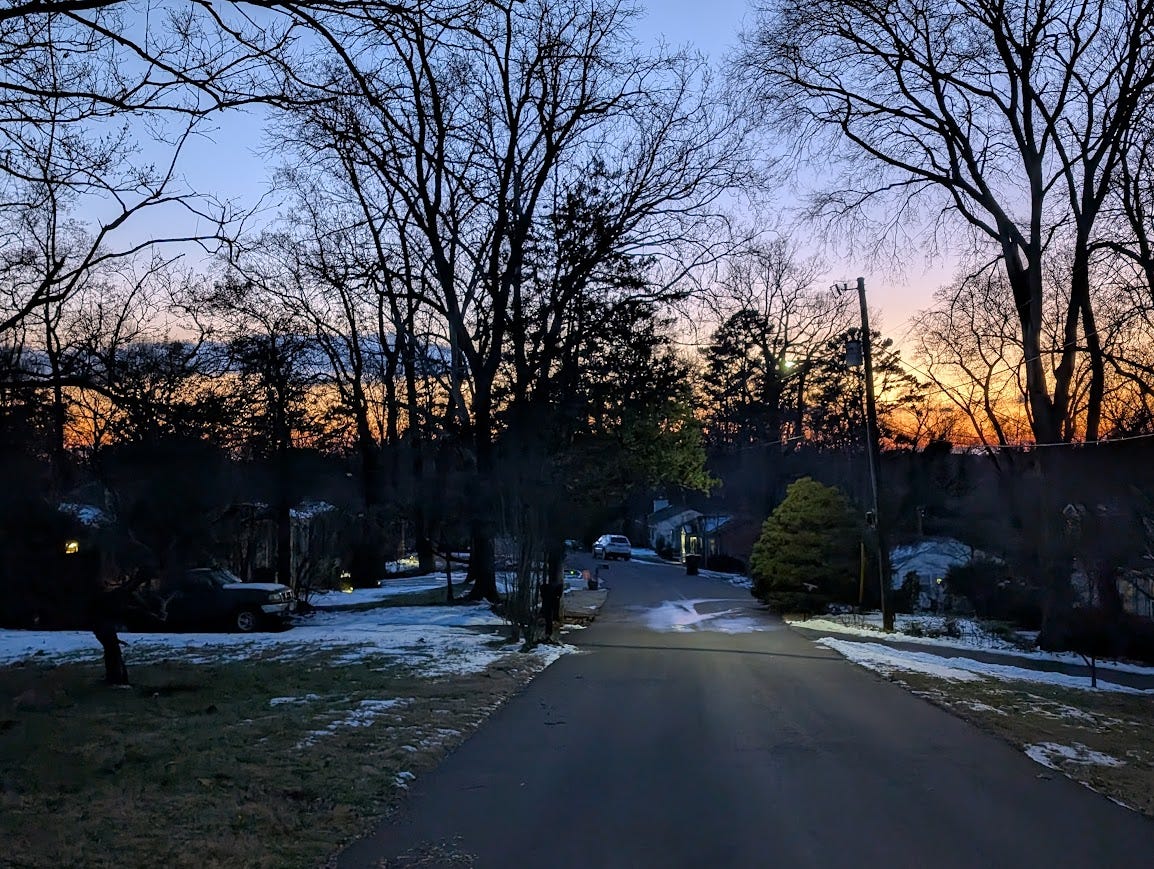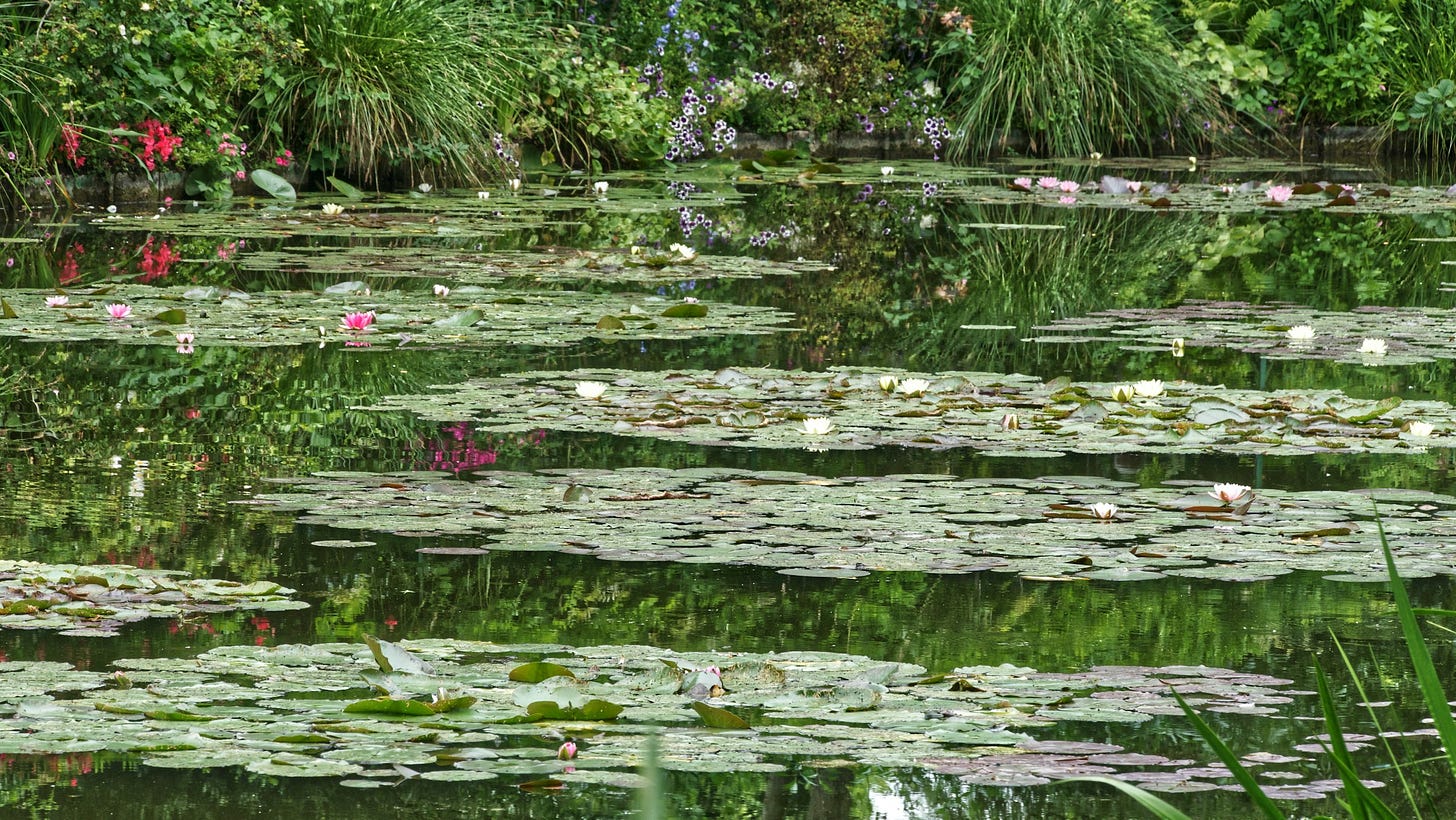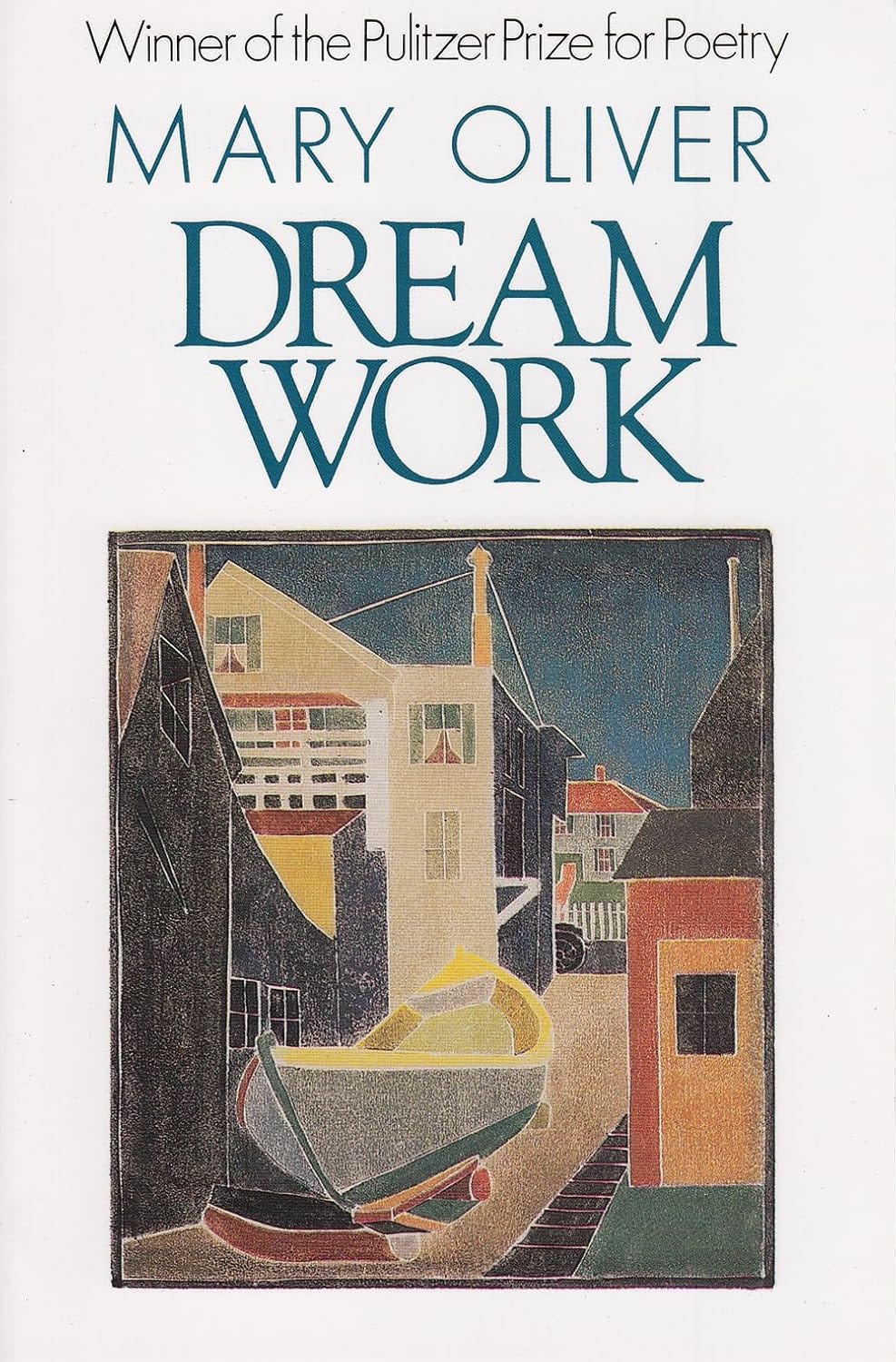Photo by Jernej Graj on Unsplash
Part 2: Nature, Mary Oliver
Francis Weller once again: “Bringing soul back to the world means perceiving the world through a deepened imagination, one that is capable of experiencing our intimacy with the surrounding world of finches and dragonflies, creeks and woodlands, neighborhoods and friends. Everything possesses soul… The earth is a revelation, offering itself to us daily in an astonishing array of beauty and suffering.” -Francis Weller, The Wild Edge of Sorrow.
Dear Seized Friends,
Where would we be without our imaginations to aid us?
My imagination has helped me through difficult times. I recently returned from the task of cleaning out my mother’s house. She died unexpectedly in late November 2023, and the house has now sold. Alongside my siblings, I meticulously combed through her belongings. This sad task was made easier by imagining her there with me, chuckling at some of her delightful and sweet letters, and shedding tears as I carefully perused the contents of my late father’s wallet.
Nature entered to enrich my time in her cottage. Her sunroom windows look out onto oaks, hickories, and cedars. As snow fell, I remembered the thrilling snow days of my childhood spent sledding and crunching through sparkling ice. We could count on Mother to present us with cups of steaming hot chocolate when we tramped back inside. In her now quiet house, two cardinals landed on frosted branches, and my sister and I associated those beauties with our parents.
Photo by Diana Ewell Engel
In the last post, “Restoration, Part 1: Nature, Weller and Rilke,” we dove into Francis Weller and Rainer Maria Rilke’s philosophies of our spiritual connections to nature which can serve to inspire and heal us. These writers firmly believe in the power of imagination when turned to the natural world.
Today we are continuing a journey towards personal restoration of our hope by considering another masterful poet. Mary Oliver, a beloved twentieth century American poet, like German transcendentalist Rainer Maria Rilke, also believed in the interconnectedness of the human soul with nature.
I ask you, during this deep winter freeze, to imagine a summer landscape—a pond of lush water lilies—as you read Oliver’s “Morning Poem” from her collection, Dream Work.
Literary critic Alicia Ostriker writes of this book, that Oliver moves “from the natural world and its desires, the ‘heaven of appetite’ ... into the world of historical and personal suffering. ... She confronts as well, steadily,” Ostriker continued, “what she cannot change” (Poetry Foundation).
Photo by Diana Ewell Engel
Morning Poem Every morning/ the world/ is created./ Under the orange/ sticks of the sun/ the heaped/ ashes of the night/ turn into leaves again/ and fasten themselves to the high branches—/ and the ponds appear/ like black cloth/ on which are painted islands/ of summer lilies./ If it is your nature/ to be happy/ you will swim away along the soft trails/ for hours, your imagination/ alighting everywhere./ And if your spirit/ carries within it/ the thorn/ that is heavier than lead—/ if it’s all you can do/ to keep on trudging—/ there is still/ somewhere deep within you/ a beast shouting that the earth/ is exactly what it wanted—/ each pond with its blazing lilies/ is a prayer heard and answered/ lavishly,/ every morning,/ whether or not/ you have ever dared to be happy,/ whether or not/ you have ever dared to pray./ - Mary Oliver, from Dream Work. A thank you to the beautiful Words for the Year website which includes “Morning Poem.”
Photo by Pascal Bernardon on Unsplash
Earth as Healer
Seized readers, did you like “Morning Poem?”
In this poem, Mary Oliver uses the form of quatrains and sunrise imagery to bring us into the landscape of nature’s renewal each morning.
Her images are the jewels of her poem and are simply expressed: orange sticks of the sun, ashes of the night, black cloth (could she be hinting at ever-present death with this black mourning colored cloth of the water’s surface?), islands of summer lilies, soft trails, the thorn, a beast.
We are with her as the sun rises and what appeared to be ash in the dark night becomes leaves again, and islands of summer lilies open. Notice how a poem serves as the perfect vehicle for showing us this transformation: We are gradually introduced stanza by stanza to the scene unfolding before us.
Imagine this poem written instead in paragraph form. Would it be as affecting?
Another tool this poet wields well is enjambment. Oliver enjambs her lines to keep us moving along with her in thought and idea. Always in poems, the beginning and ending lines of each stanza capture our visual and mental attention in a more pronounced manner—These lines catch our eyes. Her enjambment quickens our minds as she writes about our happy or sad emotional states, moving us from a last line of one quatrain to the first line of the next.
Photo by Babak Habibi on Unsplash
Look carefully at stanzas four through seven, paying close attention to her ending lines which continue into the next stanza: “ … If it is your nature / to be happy / you will swim along the soft trails // for hours, your imagination / alighting everywhere. / And if your spirit / carries within it // the thorn / that is heavier than lead— / if it’s all you can do / to keep on trudging— // there is still / somewhere deep within you / a beast shouting that the earth / is exactly what it wanted—"
She is using the form of a poem in an emotionally affecting way: The words “imagination” and “thorn” grab us.
Oliver channels our human hardships through the lens of nature. This perspective is a helpful one for me, and perhaps for you too, at this time. There are harsh realities particularly within our personal relationships and our lives which we must confront. Nature can help, aid us by its recurrent beauty and renewal. Collective suffering affects us deeply, and we can and should raise our voices in protest. First, however, we must restore ourselves. The natural world is our mirror which can help us begin to heal our hurts, strengthen our souls.
Share your thoughts about “Morning Poem.”
Today’s Book Pick
Photo taken from amazon.com
Dream Work by Mary Oliver. The Atlantic Monthly Press, 1986.
The apt Amazon book description: “Dream Work, a collection of forty-five poems, follows both chronologically and logically Mary Oliver’s American Primitive, which won her the Pulitzer Prize for poetry in 1983. The depth and diversity of perceptual awareness so steadfast and radiant in American Primitive continues in Dream Work. Additionally, she has turned her attention in these poems to the solitary and difficult labors of the spirit to accepting the truth about one’s personal world, and to valuing the triumphs while transcending the failures of human relationships.”
Share what you’re reading and/or writing!
In the next post, Rumi will walk alongside us on the path of restoration.
Until then, best wishes!
-Diana
Photo by Diana Ewell Engel











Just wanted to add that your photos are perfect. That house is a poem in itself.
Beautiful. Mary Oliver is wonderful and the context you set it in is very moving. I would like to read more by Ada Limon - do you have a favourite of hers?